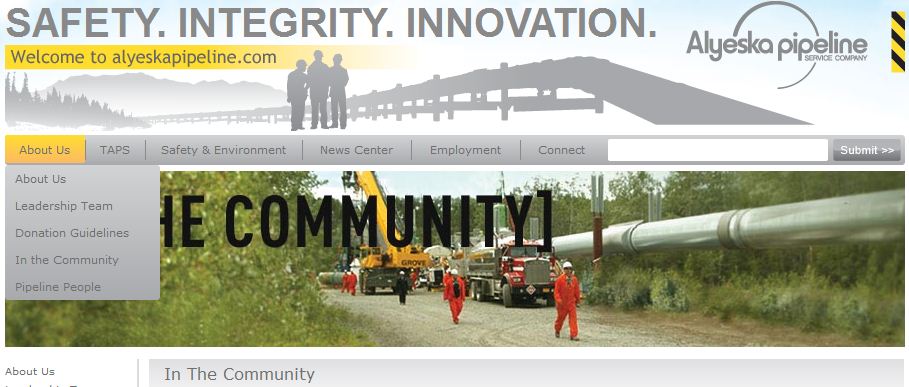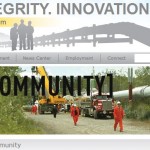The Trans-Alaska Pipeline System (TAPS) includes the trans-Alaska crude-oil pipeline, 11 pump stations, several hundred miles of feeder pipelines, and the Valdez Marine Terminal. TAPS is one of the world’s largest pipeline systems. It is commonly called the Alaska pipeline, trans-Alaska pipeline, or Alyeska pipeline, (or the pipeline as referred to in Alaska), but those terms technically apply only to the 800 miles (1,287 km) of the pipeline with the diameter of 48 inches (122 cm) that conveys oil from Prudhoe Bay, to Valdez, Alaska. The crude oilpipeline is privately owned by the Alyeska Pipeline Service Company.
The pipeline was built between 1974 and 1977 after the 1973 oil crisis caused a sharp rise in oil prices in the United States. This rise made exploration of the Prudhoe Bay oil field economically feasible. Environmental, legal, and political debates followed the discovery of oil at Prudhoe Bay in 1968, and the pipeline was built only after the oil crisis provoked the passage of legislation designed to remove legal challenges to the project.
The task of building the pipeline had to address a wide range of difficulties, stemming mainly from the extreme cold and the difficult, isolated terrain. The construction of the pipeline was one of the first large-scale projects to deal with problems caused by permafrost, and special construction techniques had to be developed to cope with the frozen ground. The project attracted tens of thousands of workers to Alaska, causing a boomtown atmosphere in Valdez, Fairbanks, and Anchorage.
The first barrel of oil traveled through the pipeline in 1977, and full-scale production began by the end of the year. Several notable incidents of oil leakage have occurred since, including those caused by sabotage, maintenance failures, and gunshot holes. As of 2010, the pipeline has shipped almost 16 billion barrels (2.5×109 m3) of oil.
Trans-Alaska Pipeline System Serves 501c3: In The Community
Alyeska Pipeline is proud of its Alaskan roots and its iconic role in the state’s past, present and future. The company honors its special relationship to the state by supporting communities in the pipeline corridor and throughout Alaska. Alyeska maintains a robust philanthropy program, offers internships and donates to scholarships, stages an annual United Way campaign, and encourages employee involvement and volunteerism. Focus areas include underserved populations, youth, diversity, safety, health and social services, the environment, and workforce development.
Flagship philanthropy events each year include Fairbanks’ community-wide Alyeska Track and Field Day, where hundreds of local children show up to play games and learn about personal safety. In Prince William Sound each spring, Alyeska sends employees and health care professionals on an immersive week-long tour of various villages and towns, where volunteers host community events and offer complimentary medical screenings and services. Longstanding partnerships with local schools have resulted in employee-supported tutoring programs, donations for libraries and other education initiatives, and special events such as the Thanksgiving feast that Alyeska holds annually at Russian Jack Elementary School in Anchorage.
Beyond these special events, Alyeska’s philanthropy program supports community events and organizations year-round through contributions, sponsorships and other financial donations.


